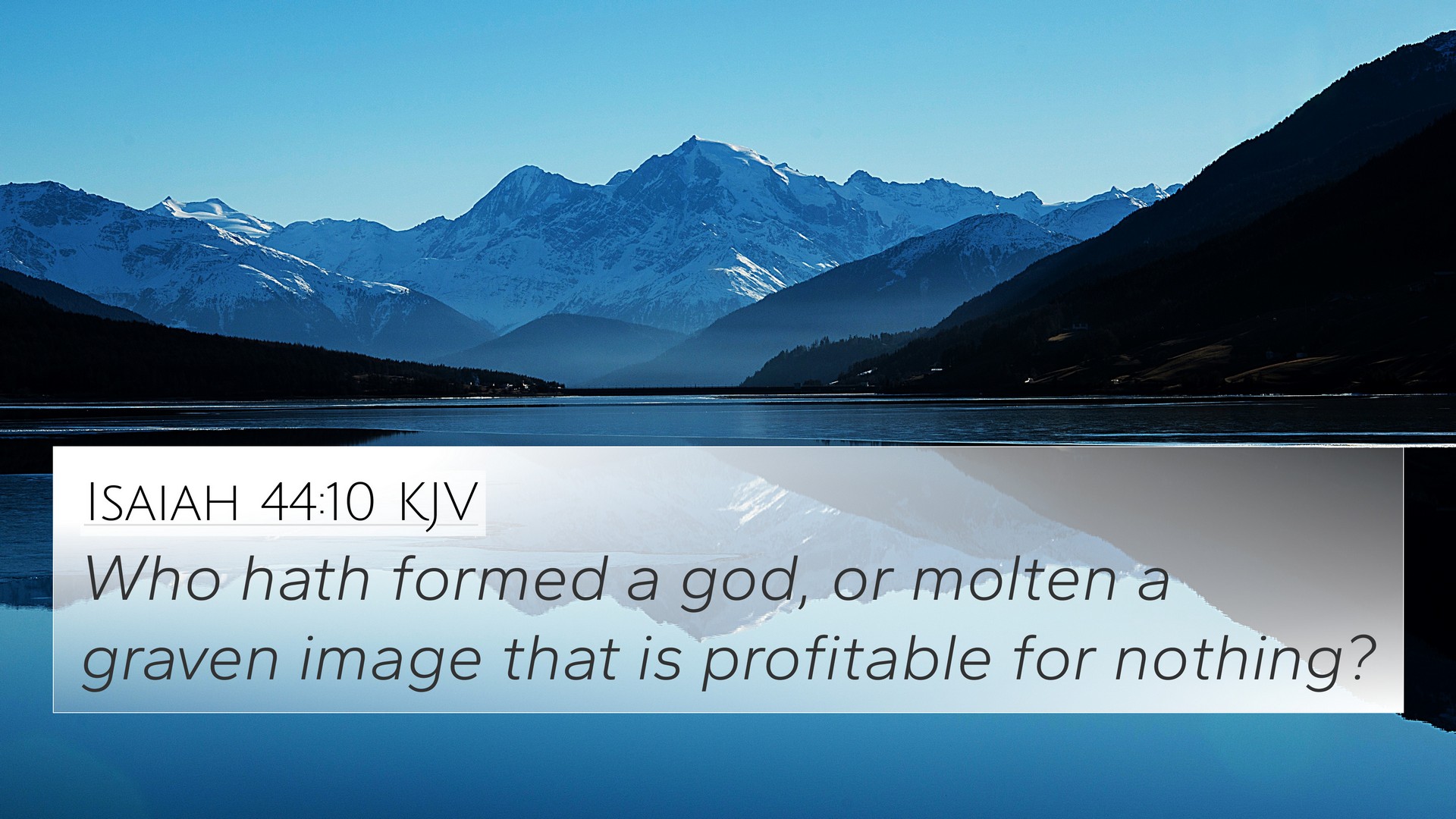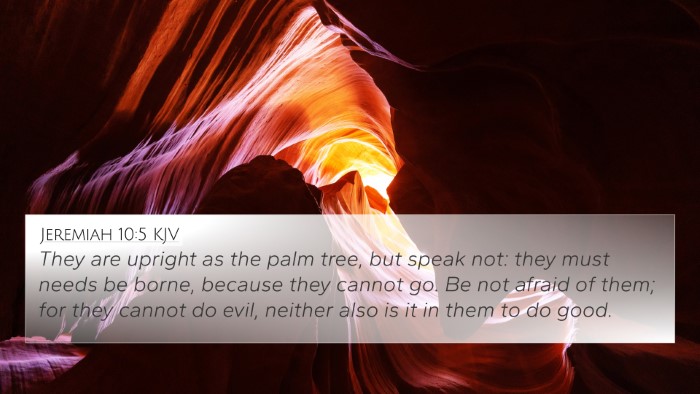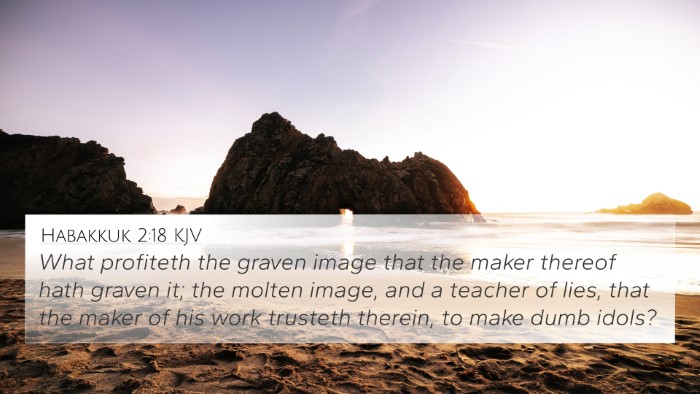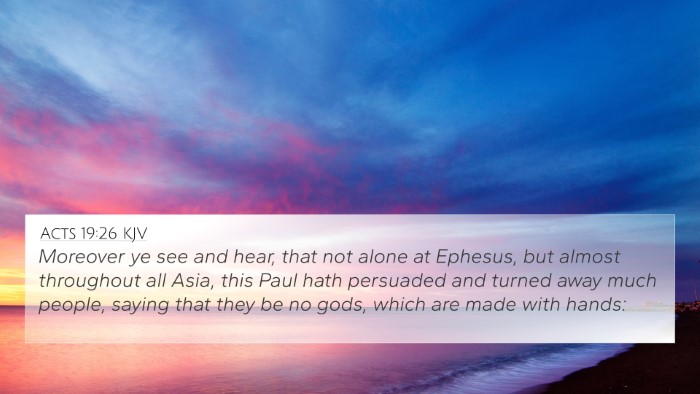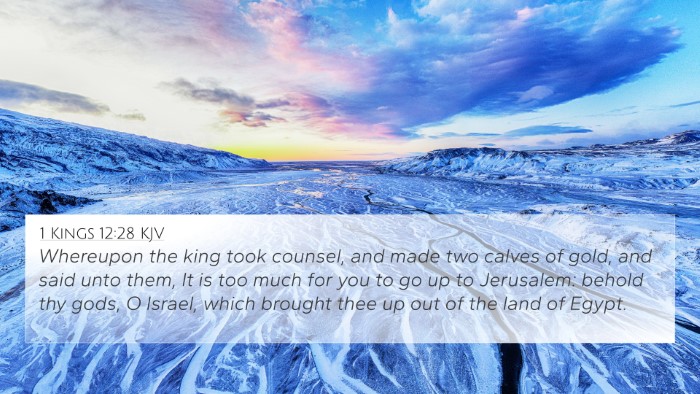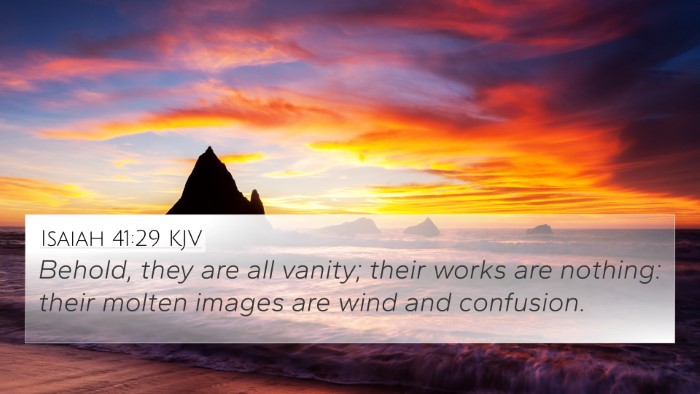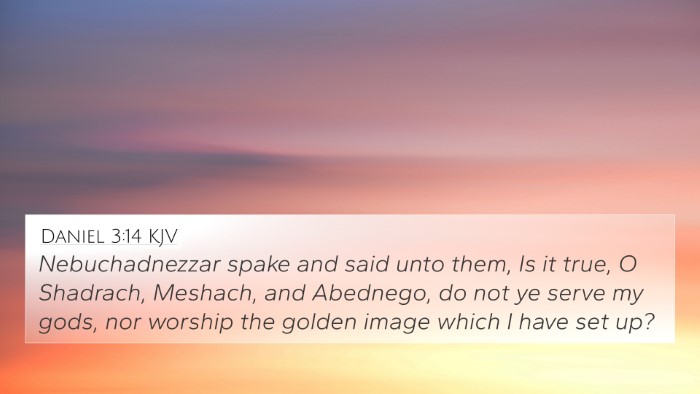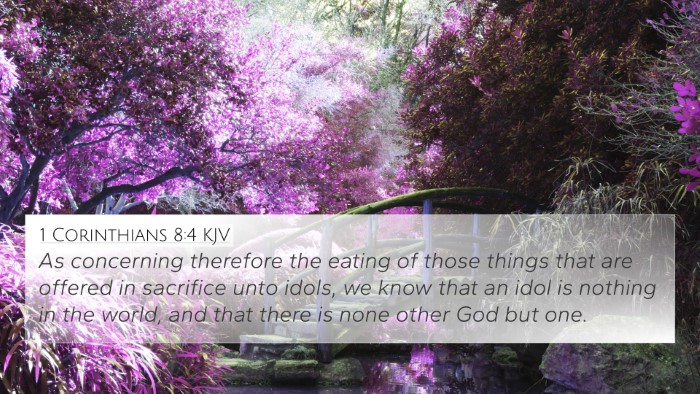Understanding Isaiah 44:10
Isaiah 44:10 states:
"Who hath formed a god, or molten a graven image that is profitable for nothing?"
This verse addresses the futility of idolatry and emphasizes the concept that man-made gods lack genuine value or ability to help those who worship them.
Summary of Meaning
The prophet Isaiah, in this passage, critiques the practice of idol worship prevalent in Israel and other surrounding nations. The rhetorical question posed by Isaiah highlights the absurdity of creating an idol—an object fashioned by human hands that cannot provide any true benefit or profit. This thought can be explored further through various public domain commentaries.
Insights from Commentators
-
Matthew Henry:
Henry reflects on the nature of idols as powerless objects. He explains how the act of idol-making contrasts sharply with the worship of the one true God, who is actively engaged in the affairs of humanity. By pondering what makes a god, he highlights how folly accompanies idolatry, leading the people away from true worship.
-
Albert Barnes:
Barnes elaborates on the rhetorical question posed in the passage, underscoring that human beings attribute value to these idols, which are, in fact, devoid of any profit. He argues that Isaiah is calling upon the people to reflect upon their worship practices critically and understand that their reliance on idols diverts them from the divine and living God.
-
Adam Clarke:
Clarke's commentary sheds light on the historical context, explaining how societies created gods with their own hands and the extent of this folly. He stresses that such creations can never match the greatness and power of the Creator God, emphasizing His sovereignty over all creation and the foolishness of human craftsmanship.
Bible Cross-References
To gain a deeper understanding of Isaiah 44:10, we can explore several related Bible verses:
- Psalm 115:4-8: This passage critiques the impotency of idols.
- Isaiah 40:18: Questions the comparison of God to images made by man.
- Jeremiah 10:5: Identifies idols as fabricated figures that cannot speak.
- 1 Corinthians 8:4-6: Discusses knowledge of God and the status of idols.
- Acts 17:29: Informs that God is not an image crafted from gold, silver, or stone.
- Isaiah 46:5: Emphasizes God's unique nature versus the likeness of idols.
- Habakkuk 2:18-19: Warns against worshipping useless idols.
Connections and Thematic Analysis
The connections between these verses and Isaiah 44:10 present a fundamental theme throughout Scripture regarding the futility of idol worship and the exaltation of God as the Creator. Through cross-referencing Biblical texts, we identify a consistent admonition against the reliance on created things over the Creator. This thematic analysis reveals the contrast between the true God and false gods found in various parts of the Bible.
Inter-Biblical Dialogue
This exploration encourages readers to delve into how different biblical passages speak to one another. The dialogue across various books, such as the prophetic insights of Isaiah and the letters of Paul, demonstrates a unified message rooted in the rejection of idolatry and the acknowledgment of God’s sovereignty.
Tools for Further Study
For those looking to study these connections more deeply, several tools can aid in the exploration of Bible cross-referencing:
- Bible Concordance: A reference tool that indexes words to verses.
- Cross-Reference Bible Study: Methods to link related scriptures.
- Bible Cross-Reference Guide: Offers organized reference materials.
Conclusion
Isaiah 44:10 serves as a powerful reminder of the emptiness of idols and invites believers to seek the one true God. By leveraging cross-references and examining inter-Biblical dialogue, we enrich our understanding of Scriptural themes regarding human folly concerning idolatry. This continuous study serves to reinforce faith in God's active presence and power as opposed to the inert and lifeless representations of human craftsmanship.
